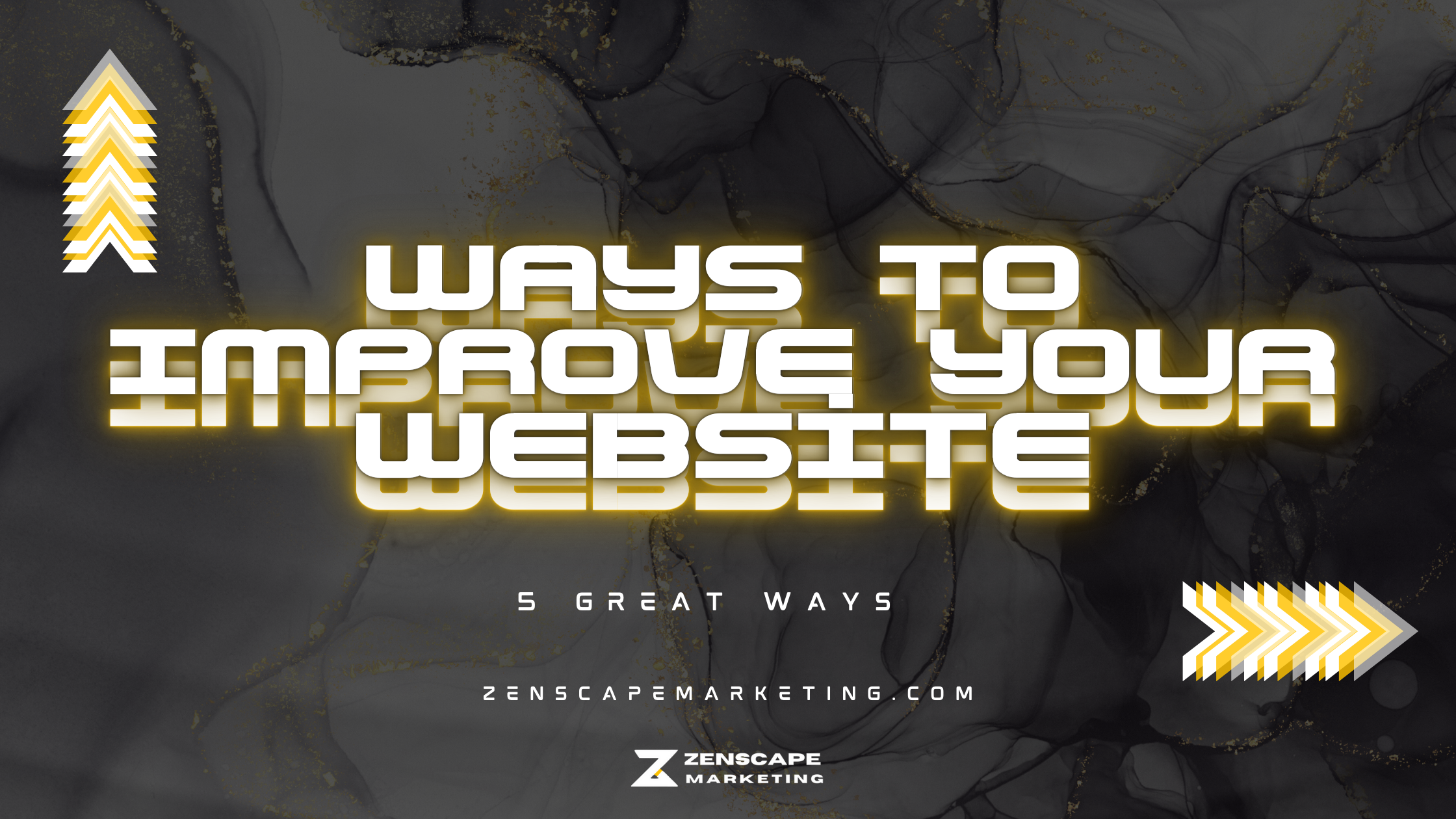Are you unhappy with how your website looks or functions? Are you missing essential features or elements you want to see on your website? If so, don’t worry – you aren’t alone. Many business and website owners struggle with making their websites look and function however they want. However, you can do a few things to improve your website and make it more user-friendly and appealing. This blog post will discuss five great ways to improve your website. Keep reading for more information.
5 Ways to Improve Your Website
Let’s have a look at these 5 great ways
1- Appearance
Appearance can play a few different roles in improving a website. For one, appearance can affect how professional and trustworthy a site looks. This first impression can be crucial in convincing visitors to stay on the site and explore its content.
Additionally, an attractive and well-designed layout can make a website more user-friendly and easier to navigate, essential factors keeping visitors engaged.
Finally, paying attention to detail in the design of a website can give it an edge over competing sites that might look sloppy or unfinished by comparison.
In sum, while appearance is not the only thing that matters regarding websites, it can be a significant factor in making a good impression and returning visitors.
A website’s appearance can be improved by following basic design principles and using standard web fonts. Adding images and videos can also help make a website more visually appealing.
One of the best ways to improve the appearance of a website is to use fonts that are widely available on most web browsers. Standard web fonts include Arial, Verdana, Times New Roman, and Georgia. These fonts are generally easy to read and look good on most websites.
Images and videos can also help make a website more visually appealing. However, using pictures and videos relevant to the website’s content is important.
Additionally, it’s essential to ensure that all images and videos are properly formatted to appear presentable.
2- Functionality
There are several ways that you can improve the functionality of your website. One way is to make sure that your site is easy to navigate. If visitors can easily find what they are looking for, they are likelier to stay on your site and continue using it.
Another way to improve functionality is to make sure your site loads quickly. Slow loading times can frustrate visitors and cause them to leave your site altogether.
Finally, you want to ensure your site is compatible with all browsers and devices. If visitors can’t access your site because it doesn’t work with their browser or device, they’ll likely just give up and go elsewhere.
3- Content
Content is one of the most important aspects of a website. It is what draws visitors in and keeps them coming back for more. Good content will improve a website’s ranking on search engines, and it will also help to convert visitors into customers.
The best way to improve the content on a website is to know what the audience wants and needs. Research to find out what topics are of interest to your target audience, and then create content that is relevant and helpful. Be sure to keep the content fresh, current, and engaging so visitors will want to read it all through.
Break up your content’s text into small paragraphs. Update your content regularly, ideally at least once a week. When writing website content, use more of “you” and less of “I, me, us, we.” Presenting your audience with multiple media formats for your content is always a good idea. Ideally, that means having text, images, and videos available for your users to consume. Pictures can be more potent than words, and videos can be more powerful than pictures. Remember the power behind different forms of digital content, and plan how you will distribute your web content wisely. Flash, for example, may be incompatible with specific browsers and can’t be entirely scanned for keywords either. This will inevitably hinder your search rankings.
Ensure you’re using high-quality images and keep your website’s landing pages uncluttered. Having more than 3 to 4 photos on one page can feel overwhelming if not executed correctly. You should also ensure that the images you use are 100% relevant to the content you are providing. This is not to confuse the user. Ask your customers if they’re willing to share testimonials about your business; if so, make sure to include them on your website. Make small changes on your homepage to promote the latest service, product, video, or event you’ll be involved in so that returning users won’t be bored of your website.
And lastly, make sure the content is correctly optimized for search engines so people can easily find it.
4- Usability
Usability is the ease of use and learnability of a website or product. It is important to understand your users and their needs to design an effective and user-friendly website.
Many factors contribute to usability, including layout, design, navigation, typography, and interactivity. If these elements are not well-designed, users will likely experience frustration and difficulty using the site.
Therefore, testing your website with real users is essential to ensure it meets their needs and expectations. By improving the usability of your website, you can improve satisfaction levels, loyalty, and conversion rates.
5- Search Engine Optimization
Search Engine Optimization (SEO) is a process of improving the visibility and ranking of a website in search engine results pages (SERPs). The higher the ranking, the more likely users find the site. SEO can be done on-site (optimizing the website) and off-site (building links from other websites).
SEO is important for businesses because it can help them get more traffic and improve their chances of conversion (turning visitors into customers or leads). In other words, SEO can help businesses make more money. That’s why it’s worth investing time and resources into SEO. When done correctly, SEO can be a very effective marketing strategy.
Want Website Experts to Take Your Site to the Next Level?
For busy business owners and marketers focused on other priorities, tackling these website enhancements in-house can be challenging.
That’s where the website specialists at Zenscape Marketing can help! Our experienced team handles successful website projects for businesses across industries. We take care of everything from information architecture and seamless UI/UX to conversion rate optimization, speed improvements, and continual website updates.
With Zenscape as your partner, you get access to:
– Website audits identifying areas for optimization
– Design enhancements for brand cohesion and visual appeal
– Development expertise for added functionality
– Content creation, editing, and SEO optimization
– Conversion rate optimization for higher lead capture
– Detailed analytics and split testing
Stop settling for a mediocre website. Contact the experts at Zenscape today to unlock the full potential of your website!


